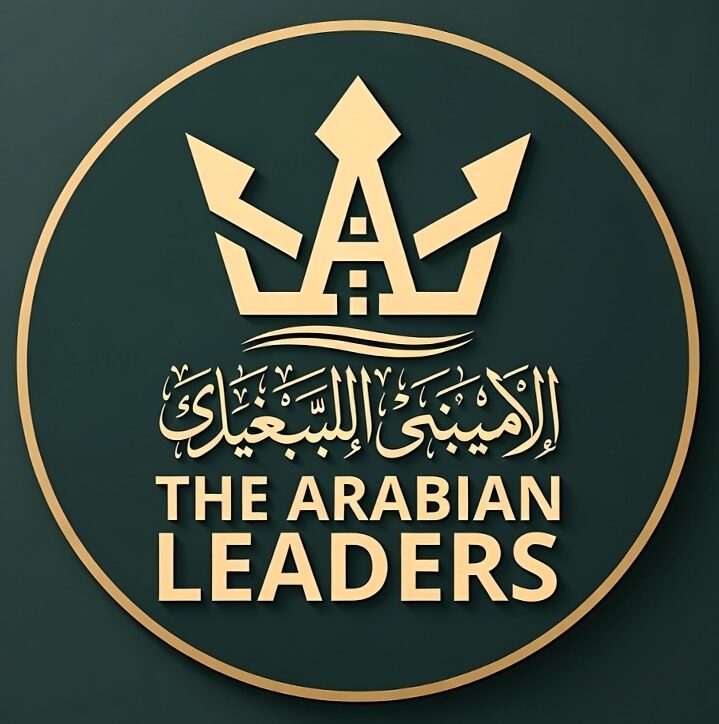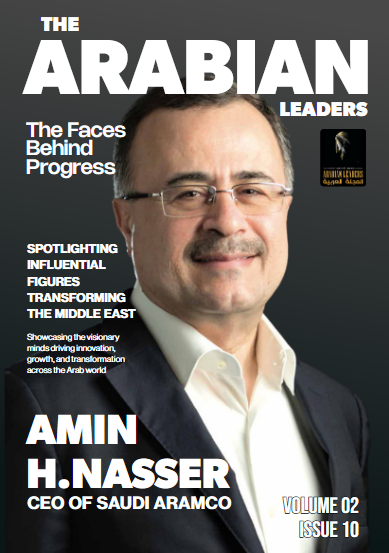In the heart of Saudi Arabia’s ongoing sports renaissance, a few strategic minds stand behind the scenes, crafting the blueprint for long-term success. Among them, Ibrahim Al Kassim, the Secretary-General of the Saudi Arabian Football Federation (SAFF), has emerged as a critical force driving the transformation of football across the Kingdom. His strategic oversight, governance expertise, and ability to execute large-scale reforms have made him a cornerstone of Saudi Arabia’s football revolution.
Al Kassim’s journey from legal expert to one of the most powerful figures in regional football illustrates a career driven by vision, consistency, and a deep-rooted passion for sport. As Saudi Arabia continues to take confident strides toward global sporting prominence under Vision 2030, figures like Al Kassim ensure that the foundations being laid are robust, modern, and inclusive.
Early Life and Academic Foundation
Ibrahim Al Kassim was born and raised in Saudi Arabia during a period when the Kingdom’s sports sector was largely underdeveloped and undervalued. From an early age, Al Kassim demonstrated both intellectual aptitude and a natural affinity for leadership. These qualities would define his later roles in policy, governance, and strategic development.
His educational journey led him to pursue a degree in law, a discipline that equipped him with a profound understanding of regulation, contracts, compliance, and governance frameworks. With a legal background that set the stage for a career in regulatory reform and administration, Al Kassim began to shape a career path not solely focused on legal practice, but rather on contributing to national transformation through the world of sports.
Legal Expertise as a Launchpad
Before joining the Saudi Arabian Football Federation, Al Kassim built a formidable career as a legal professional, working across sectors that demanded precision, interpretation of regulations, and a results-driven mindset. His legal credentials earned him roles in major Saudi institutions, where he was exposed to corporate, governmental, and international legal systems.
During this phase, Al Kassim began forming a critical understanding of how governance and law intersect with organizational performance. He was especially interested in how policy could be used to support cultural shifts, economic development, and public engagement—all pillars of Saudi Arabia’s national agenda.
It was this fusion of legal acumen and national purpose that eventually led Al Kassim toward a role in Saudi Arabia’s most popular and influential sport: football.
Appointment as Secretary-General of SAFF
Ibrahim Al Kassim’s appointment as Secretary-General of the Saudi Arabian Football Federation marked a turning point in the Kingdom’s approach to managing its national sport. As Secretary-General, Al Kassim became the highest administrative authority within SAFF, responsible for operational governance, organizational reform, and the execution of football development strategies nationwide.
This role positioned him at the center of every major football decision made in Saudi Arabia—from club licensing and referee development to hosting international tournaments and coordinating with FIFA. He took on the responsibility of transforming SAFF into a world-class federation capable of delivering on the ambitious goals outlined in Vision 2030.
His appointment was more than symbolic. It marked a shift in culture—one that prioritized professionalism, compliance, and long-term planning over short-term outcomes.
Strategic Reforms in Saudi Football
Since assuming the role of Secretary-General, Al Kassim has spearheaded a series of transformative initiatives that have redefined the operational structure of Saudi football. His strategic vision is rooted in four primary pillars: modernization, internationalization, governance, and inclusivity.
1. Governance and Compliance Overhaul
One of Al Kassim’s earliest priorities was to reform the Federation’s internal governance framework. Under his leadership, SAFF adopted new statutes aligned with global standards, restructured internal committees, and implemented rigorous auditing mechanisms to ensure transparency.
These reforms were critical in earning the confidence of international organizations like FIFA and AFC. They also provided the foundation upon which SAFF could begin applying for and hosting major global events.
2. Club Licensing and Professionalization
A major part of Al Kassim’s legacy has been the introduction and enforcement of club licensing regulations. These standards, which align with AFC and FIFA frameworks, require Saudi clubs to demonstrate fiscal responsibility, maintain proper youth development systems, and meet ethical and legal standards.
The result has been a steady improvement in the professionalism of Saudi football clubs. Teams now operate more like international businesses than casual sporting institutions—paying closer attention to budgeting, governance, and player development.
3. Expansion of Football Infrastructure
Al Kassim has also played a crucial role in guiding the infrastructure development plans that support Saudi football’s ambitions. Under his administrative watch, dozens of new football facilities have been commissioned, training centers modernized, and grassroots venues made more accessible to the general public.
His emphasis on facility development aligns with Saudi Arabia’s wider Vision 2030 infrastructure goals and ensures that football is no longer limited to elite circles, but available to all communities nationwide.
4. Hosting Global Events
Ibrahim Al Kassim has been instrumental in positioning Saudi Arabia as a host for international tournaments. Under his tenure, the country has successfully secured rights to host the 2023 AFC Asian Cup (later relocated) and bid for high-profile events such as the FIFA World Cup and Club World Cup.
Each of these endeavors required complex coordination with international partners, bid presentations, and assurances regarding organizational capacity. Al Kassim’s legal background and diplomatic poise made him an ideal figure to lead these negotiations.
Commitment to Women’s Football
A noteworthy element of Al Kassim’s leadership has been his unwavering support for women’s football in Saudi Arabia. Working alongside other SAFF leaders, Al Kassim has facilitated the creation of formal women’s leagues, supported female referee training programs, and ensured that women’s football receives equitable governance and resources.
His inclusive approach to football is both progressive and strategic. By expanding access to the sport, he is helping unlock the full potential of Saudi Arabia’s population while contributing to the social reforms prioritized by Vision 2030.
Leadership Style and Organizational Culture
Al Kassim is widely regarded as a consensus builder and a disciplined strategist. His leadership style prioritizes structure, clarity, and data-informed decision-making. Within SAFF, he has cultivated a results-oriented culture that prizes accountability, measurable goals, and interdepartmental cooperation.
His insistence on aligning every football initiative with Saudi Arabia’s broader national objectives has made SAFF a more relevant and respected institution within both sports and government circles. Staff morale, performance expectations, and inter-agency communication have all improved under his leadership.
Collaboration with International Bodies
Al Kassim maintains strong working relationships with international football authorities, including FIFA, the Asian Football Confederation, and national federations across Europe, Asia, and Africa. These relationships are critical not only for diplomacy but also for knowledge transfer, strategic partnerships, and representation in global football governance.
He has represented Saudi Arabia in international forums and has been part of advisory boards and committees that guide policy at the regional and global levels. These efforts have helped elevate Saudi Arabia’s voice in football’s most influential corridors.
Championing Grassroots and Youth Development
Understanding that sustainable success in football must begin at the grassroots level, Al Kassim has supported the development of youth academies, school-based football programs, and regional tournaments. These initiatives are designed to identify and cultivate young talent, ensuring a pipeline of skilled players for future national teams.
He has also encouraged clubs to invest more in their youth systems, tying these efforts to club licensing criteria and performance benchmarks.
Legacy and Long-Term Impact
Ibrahim Al Kassim’s legacy is still being written, but its early chapters suggest a profound and lasting impact on the future of Saudi football. He has not only modernized the Federation but has created systems, policies, and cultures that will endure for decades.
Key hallmarks of his legacy include:
- A more transparent and professionalized football ecosystem
- Strengthened international credibility and participation
- Institutional support for women and youth in sports
- Alignment of football with national development goals
He is widely regarded as one of the Kingdom’s most effective sports administrators and is likely to play a key role in any future bids for major global events, including the FIFA World Cup.
Conclusion
Ibrahim Al Kassim exemplifies the new face of Saudi sports leadership—strategic, principled, and committed to excellence. His work as Secretary-General of SAFF has laid the foundation for a footballing future that is more competitive, inclusive, and globally respected.
As Saudi Arabia continues to rise on the global sports stage, it is administrators like Al Kassim who ensure that the journey is not only swift but sustainable. Through meticulous planning, legal rigor, and a passion for the beautiful game, he has become one of the Kingdom’s most influential sporting minds.








